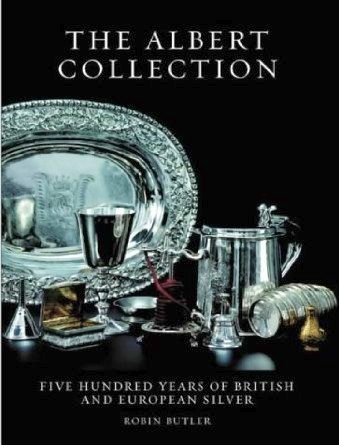1 lingua: inglese Legat. edit. in tela con sovrac. illustrata, cm 33x25, pag. XX + 354, con centinaia di illustraz. a colori e in b / n - A cura di Robin Butler - Splendida opera che documenta e illustra una importantissima collezione di argenti inglesi ed europei - Perfetto stato - This unique collection of beautiful and intriguing objects, more than 700 pieces of British and European silver, was put together over the past forty years by a discerning English enthusiast. It is striking for its great variety of types, the five centuries represented and the widespread places of making, from Finland to Italy, offering an unparalleled overview of design and technique, as well as a social history of silver for eating, drinking, around the house and as accessories to daily life. Selected with a keen eye for their excellent condition, their historical interest, and their inherent quality, most objects are of museum standard, although no single museum holds so many examples of flatware, from England and France and drinking vessels from Spain, Germany, France and Britain, of such diverse designs and dates. Tableware ranges in scale and date from a bread basket by Paul Crespin to an elegant modern caviar spoon. Great names from the story of English silver are present, from Paul Storr and the royal goldsmiths Robert Garrard, Philip Rundell and Benjamin Pyne, to leading Huguenots, such as John Hugh le Sage, David Willaume and Edward Feline. A caster from Charles Kandler's service for the Duke of Norfolk, spoons by Hester Bateman, mustard pots by the Hennells, and small wares by Joseph Willmore and other specialist Birmingham makers of 'toys' tell the story of polite dining. Regional rarities from Plymouth, Liverpool, Norwich, Exeter, Chester and Scottish - made drinking vessels round out the coverage. Royal associations appealed to the collector, explaining the presence of a beaker from the Battle of Culloden, a set of two - handled cups are among half a dozen items from the Duke of Cumberland's famous collection and the badges worn by King's Messengers. Plaques by Simon de Passe depict Elizabeth I and other royal successors. Rarities include an early Stuart royal bell and a varvel for a hawk. A strong category is the engaging personal accessories, from a calendar to a shoe horn, with striking and varied boxes for patches, tobacco and snuff. Many boxes combine semi - precious stones or organic materials such as mulberry wood, turtle shell and mother of pearl. A history of changing taste emerges through the chinoiseries of a late seventeenth - century perfume flask, the pique work or allusive baroque engraving on snuff boxes, rococo chasing of cream jugs, chaste neoclassical teawares, flamboyant Regency wine labels and inventive and eclectic Victorian tableware. Each object has been catalogued and specially photographed, often with details, for this publication, making it a significant work of reference, as well as a handsome record of the ingenious art of the silversmith. Grouped by their purpose, each section is introduced with a brief summary of social and design history and supplementary illustrations such as the sources for engraving.

Découvrez comment utiliser
Découvrez comment utiliser

